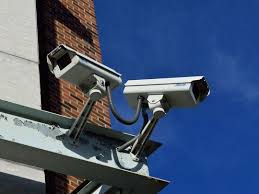To combat crime, the Sindh government agreed to put automated numberplate recognition cameras (ANPR) at toll plaza entry and exit points around the province on Thursday.
Murad Ali Shah, the chief minister of Sindh, presided over a meeting of the provincial cabinet where the decision was reached. Provincial ministers, advisers, special assistants, the chief secretary (Sohail Rajput), the chairman of the planning and development department (Hassan Naqvi), the principal secretary to the chief minister (Fayaz Jatoi), and other relevant employees were present.
The provincial home department notified the cabinet that the smart security cameras would photograph licence plates and occupants in the front seats during the meeting. The cameras would read the text on numberplates to recognise cars and utilise face recognition technology to recognise the passengers.
The Central Police Office’s central monitoring room would get the images in real-time. The concept, according to the home department, will identify vehicles connected to crimes, including as theft and hit-and-runs, and give early notice of questionable vehicles entering the city.
The cameras would also be able to recognise suspects connected to a certain car using facial recognition technology and move detection.
The project’s estimated cost is Rs. 1.57 billion, and CM Shah stated he was prepared to get funding after the cabinet’s approval.
He said that in order to preserve integrity and security, the Sindh Police thought the project should be carried out on a government-to-government basis.
Following the project’s acceptance by the cabinet, Shah gave the chief secretary instructions to recruit a consultant right once and to award the project’s contract within a month.
Separately, Home Secretary Saeed Mangnijo informed the cabinet that a group led by a DIG-rank official had compiled suggestions for giving money in exchange for apprehending or executing offenders responsible for terrible crimes.
He stated that the project had been evaluated and approved by the inspector general before being delivered to the home department.
The police department moved a claim whenever a criminal was apprehended or murdered, the cabinet was informed. However, it was recently discovered that not only was there no restriction on the prize money, but also that the intended payment had not been rationalised.










